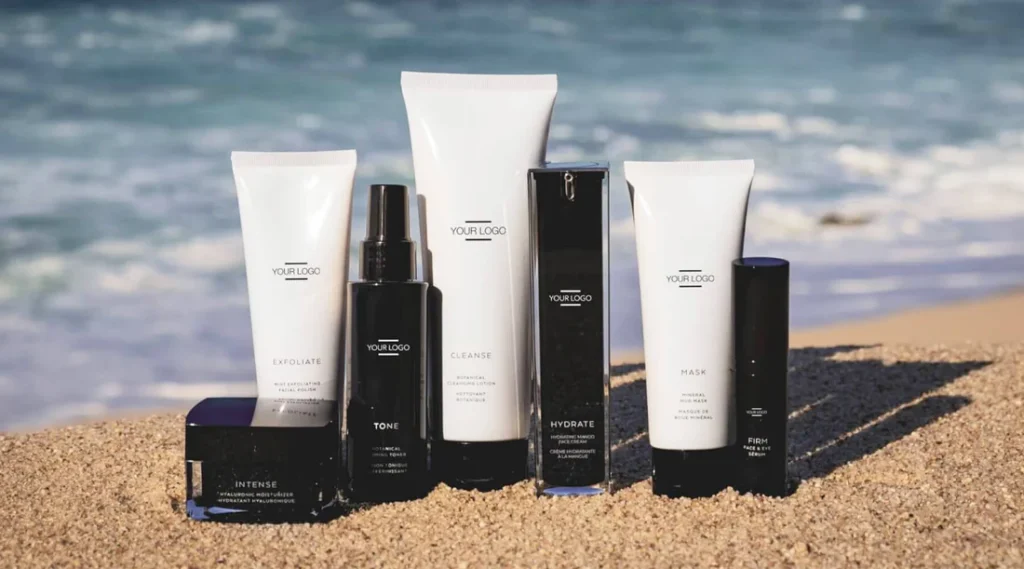In today’s beauty and skincare industry, private label products are rapidly gaining popularity. Brands that want to scale quickly and stand out in a competitive market are turning toward private labeling as a strategic way to launch high-quality skincare products without the burden of full-scale manufacturing. This approach allows businesses to focus on marketing, customer experience, and brand growth, while specialized manufacturers handle the product development and production side.
One such experienced partner in this industry is Zicail, a renowned skincare and cosmetic manufacturer based in Jiangsu, China. With extensive industry expertise, Zicail provides private label, contract manufacturing, and distribution services to global brands, ensuring innovative formulations, premium quality, and flexible production capabilities.
In this article, we’ll explore how entrepreneurs and businesses can build a successful private label skincare brand, the benefits of working with professional manufacturers, and the key elements that make a product line thrive in today’s beauty-driven market.
Understanding the Power of Private Label Skincare
Private label skincare refers to products developed and produced by a third-party manufacturer but sold under your brand’s name. This business model is ideal for:
- Startups looking to enter the skincare market without heavy capital investment.
- Established brands that want to expand their product lines quickly.
- Retailers and distributors aiming to offer unique skincare collections.
With private labeling, you gain access to ready-made or custom formulations, packaging solutions, and regulatory compliance support. This reduces the time to market and allows you to focus on creating a strong brand identity.
Why Private Labeling is the Future of Skincare
The global skincare industry is evolving, and private labeling is at the heart of this transformation. Here’s why:
- Faster Market Entry – Manufacturers provide pre-tested formulations that speed up product launches.
- Lower Production Costs – Shared facilities and resources reduce expenses.
- Brand Exclusivity – Products can be tailored to reflect your unique brand vision.
- Scalability – From small batches to large-scale production, private labeling supports growth.
- Innovation Access – Manufacturers often invest in R&D, ensuring your products remain competitive.
Choosing the Right Private Label Partner
The success of your skincare brand depends heavily on the manufacturer you select. A reliable partner should provide:
- Custom formulation options for unique product lines.
- Strict quality assurance processes to ensure safe, effective products.
- Compliance with global standards such as FDA, GMP, or ISO certifications.
- Flexible order quantities to support both small and large businesses.
- Packaging and branding support for a professional market presence.
A trusted manufacturer like Zicail stands out because of its global experience, multilingual support, and advanced production facilities. By working with professionals who understand international beauty trends and consumer demands, your brand is better positioned for long-term success.
Key Elements for Building a Strong Skincare Brand
While private labeling provides the foundation, building a thriving skincare brand also requires strategic steps:
1. Identify Your Target Audience
Define whether your brand caters to luxury consumers, eco-conscious buyers, or budget-friendly shoppers. Understanding your audience shapes your product formulations, packaging, and marketing approach.
2. Focus on Product Innovation
The skincare market is flooded with products. To stand out, emphasize innovative ingredients like hyaluronic acid, retinol, vitamin C, or plant-based extracts. Partnering with an experienced manufacturer ensures access to the latest ingredient trends and research.
3. Ensure Quality Assurance
Customers today demand transparency and safety. Working with a manufacturer that prioritizes testing, certifications, and compliance builds trust and loyalty.
4. Create a Strong Brand Identity
Your brand’s packaging, messaging, and customer experience should all align with your values. A cohesive identity increases brand recall and customer trust.
5. Invest in Marketing and Distribution
Even with top-quality products, success depends on visibility. Use digital marketing, influencer collaborations, and e-commerce platforms to expand your reach.
The Role of Innovation in Skincare
Innovation is no longer optional—it’s the backbone of skincare success. From clean beauty formulations to eco-friendly packaging, consumers want products that align with their values and lifestyles. Manufacturers with strong R&D departments can help brands create unique formulations that respond to market demands, such as:
- Organic and natural skincare
- Vegan and cruelty-free products
- Anti-aging solutions
- Multifunctional products (e.g., serums that hydrate and brighten simultaneously)
- Sustainable packaging options
Ensuring Quality and Compliance
In the skincare industry, quality assurance is non-negotiable. Regulations vary across countries, and non-compliance can lead to costly recalls or damaged reputations. A professional manufacturer will ensure:
- Ingredient transparency with detailed documentation.
- Clinical testing to confirm product safety and effectiveness.
- Certifications that meet regional and international requirements.
Zicail, for example, integrates strict quality control measures throughout production, ensuring that every product meets global safety standards before reaching the market.
Steps to Launching Your Private Label Skincare Brand
Here’s a step-by-step roadmap to get started:
- Market Research – Identify current trends and gaps in the skincare industry.
- Select a Manufacturer – Partner with a trusted company that offers both innovation and compliance.
- Choose Your Product Range – Start with a few core items like cleansers, moisturizers, or serums.
- Customize Branding and Packaging – Create packaging that reflects your brand’s identity and values.
- Test Your Products – Sample batches to ensure product satisfaction and quality.
- Plan Distribution Channels – Decide whether to sell online, in retail stores, or through distributors.
- Launch and Market – Use social media, influencers, and SEO-driven content to promote your products.
- Collect Feedback – Refine your offerings based on customer reviews and performance.
Final Thoughts
Building a successful private label skincare brand requires the right balance of innovation, quality, and branding. By working with experienced manufacturers like Zicail, businesses can access cutting-edge formulations, industry expertise, and reliable quality assurance that form the foundation of a thriving brand.
For entrepreneurs and established companies alike, private labeling offers an exciting pathway into the growing beauty industry. With the right strategy and the right partner, your brand can stand out, capture consumer trust, and achieve long-term success.

